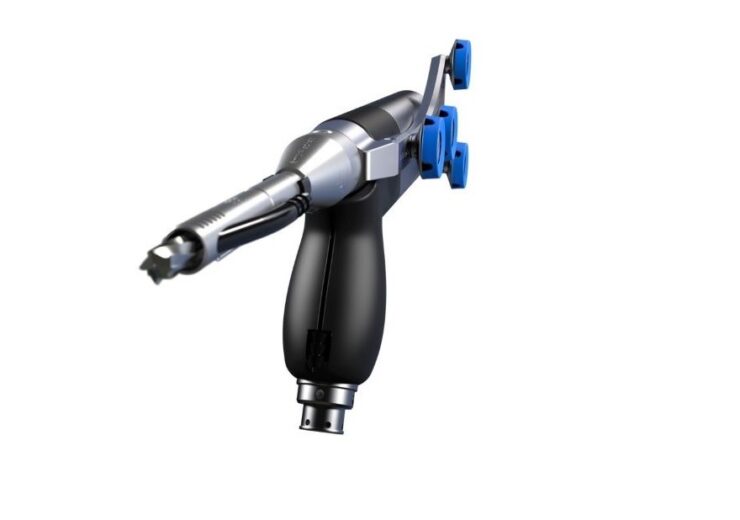The CORI system is a compact and fully mobile5 solution incorporating a 3-D intra-operative imaging system with an advanced robotic sculpting tool

Smith+Nephew launches CORI handheld robotics for both total and partial knee arthroplasties. (Credit: Smith & Nephew plc)
Smith+Nephew (NYSE:SNN; LSE:SN), the global medical technology business, today announces the launch of CORI™ handheld robotics, an advanced system for both total and partial knee arthroplasties.
The CORI system is a compact and fully mobile5 solution incorporating a 3-D intra-operative imaging system with an advanced robotic sculpting tool. The robotic system allows surgeons to measure, plan, and perform a knee surgery which is personalised to the patient’s individual anatomy in theatre.
The Smith+Nephew system is considerably more compact6 than alternative robotic systems*, has minimal set up time, and is so portable** it can be moved from theatre to theatre to optimise flow of patients through surgical units.
One of the first surgeons to use the device in the UK, Mr Tim Parratt, Consultant Orthopaedic Surgeon at East Suffolk North Essex NHS Foundation Trust says, “The CORI system is excellent to use. This technology is mobile, portable and slots seamlessly into theatre. There is minimal disruption for the theatre staff. If anything, it’s easier than getting conventional kit ready. This system also allows me to tailor the operation to the patient’s unique physiology, whereas with instruments I tended to perform the same operation every time on each patient.”
Patient Outcomes: Less pain, fewer revisions, and greater satisfaction post-surgery
Over 680,000 people are currently waiting for a hip or knee replacement7. Many of those have waited well over a year, living with chronic pain. More than 10 per cent of patients waiting for knee surgery in the UK say their quality of life is ‘worse than death’8.
The benefits of robotics-assisted surgery for patients are myriad, and include significantly improved patient reported outcome measures (PROMs)9,10 †‡ and shortened length of hospital stay11‡, there is evidence of an earlier return to an active lifestyle12‡.
Australia has been a leader in the field of robotics and navigation in orthopaedic surgery and the registry has demonstrated the benefits patients can expect such as fewer revisions13 and complications13, and a shorter length of hospital stay with the patient able to be discharged in sub-24 hours.14
“The CORI system enables every patient to have a knee replacement that is shape matched and aligned to their specific anatomy. We know that outcomes aren’t consistent in non-robotic surgeries and that one in five patients15-20 have issues following surgery. Our technology has evolved so that we can achieve a personalised fit to each individual patient,” says Mr Simon Tarry, Managing Director, UK, Ireland & Nordics, Smith+Nephew.
Innovation at Smith+Nephew
The CORI system is amongst the first technology to place the surgeon at the heart of the digital operating room. Surgeons can access the benefits of robotic surgery but still have full decision-making capability at each step of the operation.
This system is the first of several launches in technology and software over the next five years, demonstrating Smith+Nephew’s commitment to improve surgical experience through digital and technology innovation across the patient pathway.
Source: Company Press Release
